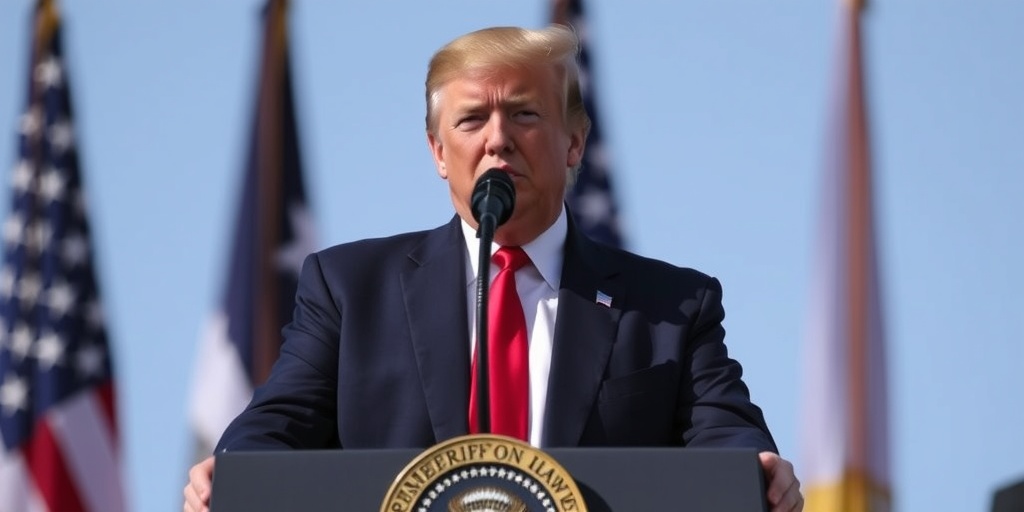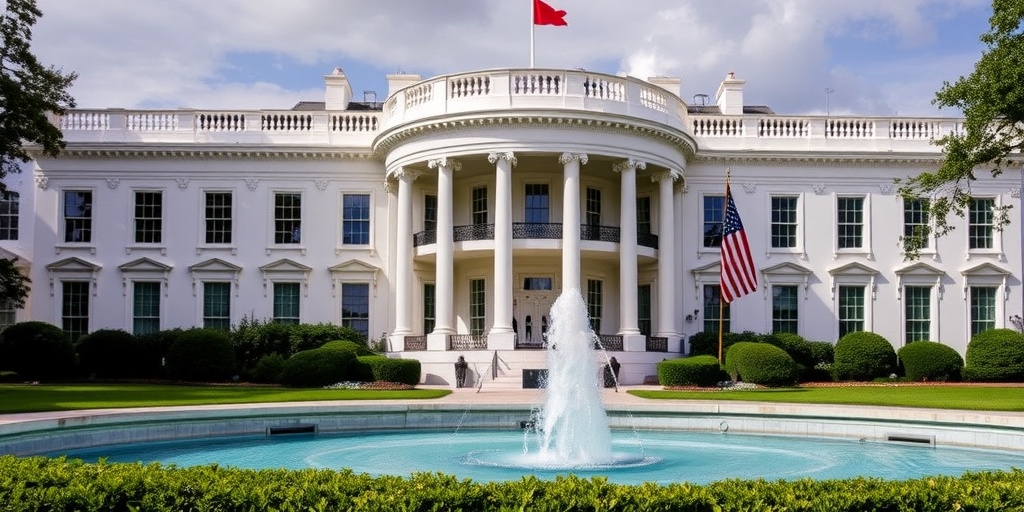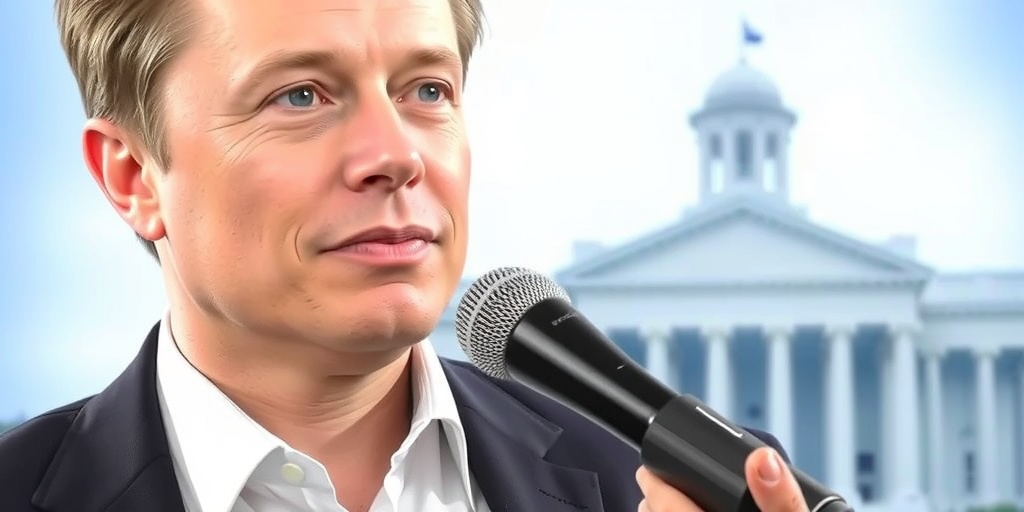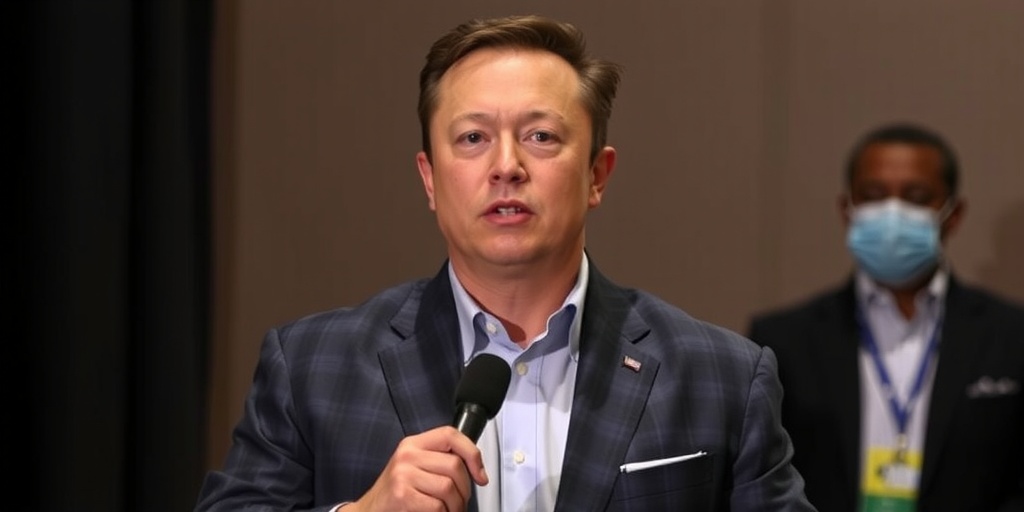Now Reading: Trump’s Frustration Leads to Unconventional General Choice
-
01
Trump’s Frustration Leads to Unconventional General Choice
Trump’s Frustration Leads to Unconventional General Choice

Trump Appoints General Dan Caine as New Chairman of the Joint Chiefs of Staff
In a significant leadership shift within the Pentagon, President Trump has decided to replace General Charles Q. Brown Jr., the current Chairman of the Joint Chiefs of Staff, with General Dan Caine, a retired three-star Air Force officer. The announcement came after a series of high-level discussions among top administration officials, marking a notable departure from the traditional military leadership.
General Caine, who recently retired after serving as the Pentagon’s liaison to the CIA, emerged as an unconventional choice amidst suggestions of various higher-profile candidates. Among them was General Michael E. Kurilla, the Army’s four-star general in charge of U.S. military operations in the Middle East. Despite Kurilla’s extensive experience and ongoing discussions with the president, Caine’s comparatively obscure background ultimately won him the position.
During a meeting at the White House on February 14, President Trump and General Caine spent an hour discussing military strategies, which significantly influenced the president’s decision. Trump characterized Caine in a subsequent social media post as “an accomplished pilot, national security expert, successful entrepreneur, and a ‘warfighter’ with significant interagency and special operations experience."
The decision to appoint Caine is part of a broader purge at the Pentagon, indicating Trump’s ongoing frustrations with military leadership since his first term. Historically, Trump has vilified senior military leaders whom he perceives as disloyal, reflecting deep skepticism towards the military establishment. His decision was partly influenced by Caine’s lack of association with the Biden administration and a brief encounter in Iraq years ago that impressed the president.
In recent years, Trump has publicly lauded Caine, recalling a pivotal moment during a 2018 visit to Iraq when Caine demonstrated a bold stance against the Islamic State, suggesting that it could be defeated much more rapidly than senior military advisers had indicated. Their renewed relationship will undoubtedly be tested amid various national security challenges, including the ongoing conflict in Ukraine and rising tensions with China.
The appointment of General Caine signals a shift in Trump’s approach to military leadership. The previous Chairman, General Mark Milley, fell out of favor with Trump after the president criticized him for a perceived lack of loyalty during civil unrest in 2020. This past grievance seems to have shaped Trump’s current choices, steering him towards candidates like Caine, who were outside the existing military hierarchy.
John R. Bolton, Trump’s former national security adviser, remarked on the president’s fluctuating perceptions of military leaders: “Trump likes his generals up until the point he doesn’t anymore.” This statement underscores the complex dynamics that Caine will navigate in his new role.
Following Trump’s election to a second term, it was widely expected that General Brown would be replaced. Newly confirmed Defense Secretary Pete Hegseth had publicly stated his belief that Brown was focused too much on diversity initiatives, fueling speculation about the general’s future.
As the search for a new chairman accelerated, candidates like Admiral Samuel J. Paparo Jr. were briefly discussed before the list narrowed down to Caine and Kurilla. In the end, Trump’s desire for someone who aligns closely with his worldview and does not carry the weight of prior administration loyalties won out.
General Caine’s military background is impressive. A former F-16 pilot who flew missions during the September 11 attacks, he has held various important roles, including being involved in counterterrorism operations and special assignments within the intelligence community. His experiences and achievements make him a fitting candidate for the position, but the expectations placed upon him are elevated, particularly in light of Trump’s past grievances with military leadership.
Despite Trump’s certain loyalty to Caine, there remains a vital question about Caine’s ability to provide honest military advice to the president against the backdrop of political pressures. As he prepares for his new role, he faces a challenging confirmation hearing in the Senate, where policymakers will likely question his commitment to speaking candidly with Trump.
In facing such scrutiny, Caine’s reputation for directness and professionalism will come to the forefront. As General Kenneth F. McKenzie Jr., former head of Central Command, stated, "I never saw him as a yes-man.” This philosophy of candid communication will be paramount as the nation navigates critical security issues while ensuring that military recommendations are driven by integrity rather than political expediency.
Ultimately, as General Caine steps into his new role, the military community and the nation will be watching closely to see how he balances his responsibilities to both the president and the foundational ethos of the military amid an increasingly politicized environment.
Stay Informed With the Latest & Most Important News
Previous Post
Next Post
-
 01New technology breakthrough has everyone talking right now
01New technology breakthrough has everyone talking right now -
 02Unbelievable life hack everyone needs to try today
02Unbelievable life hack everyone needs to try today -
 03Fascinating discovery found buried deep beneath the ocean
03Fascinating discovery found buried deep beneath the ocean -
 04Man invents genius device that solves everyday problems
04Man invents genius device that solves everyday problems -
 05Shocking discovery that changes what we know forever
05Shocking discovery that changes what we know forever -
 06Internet goes wild over celebrity’s unexpected fashion choice
06Internet goes wild over celebrity’s unexpected fashion choice -
 07Rare animal sighting stuns scientists and wildlife lovers
07Rare animal sighting stuns scientists and wildlife lovers





















